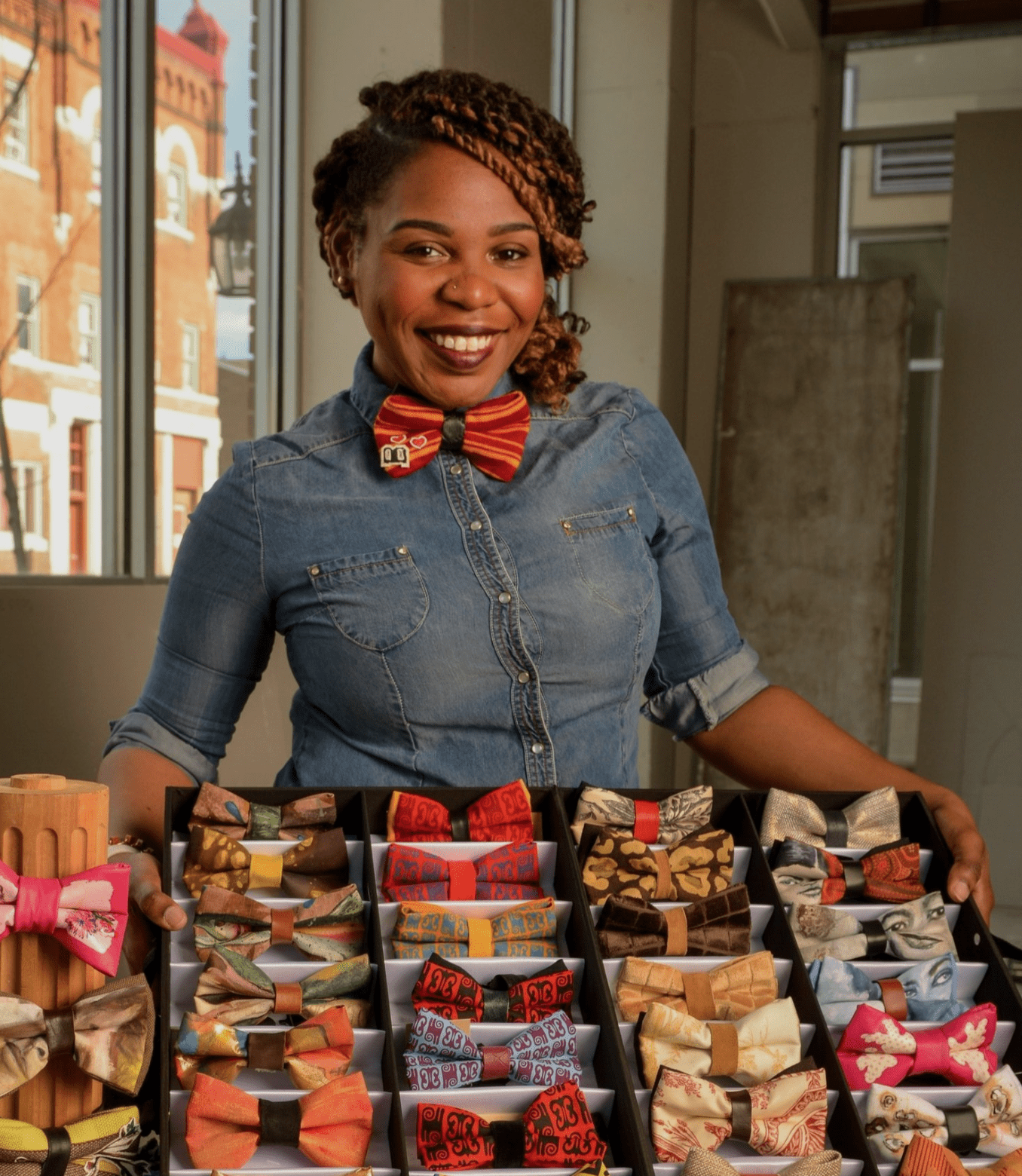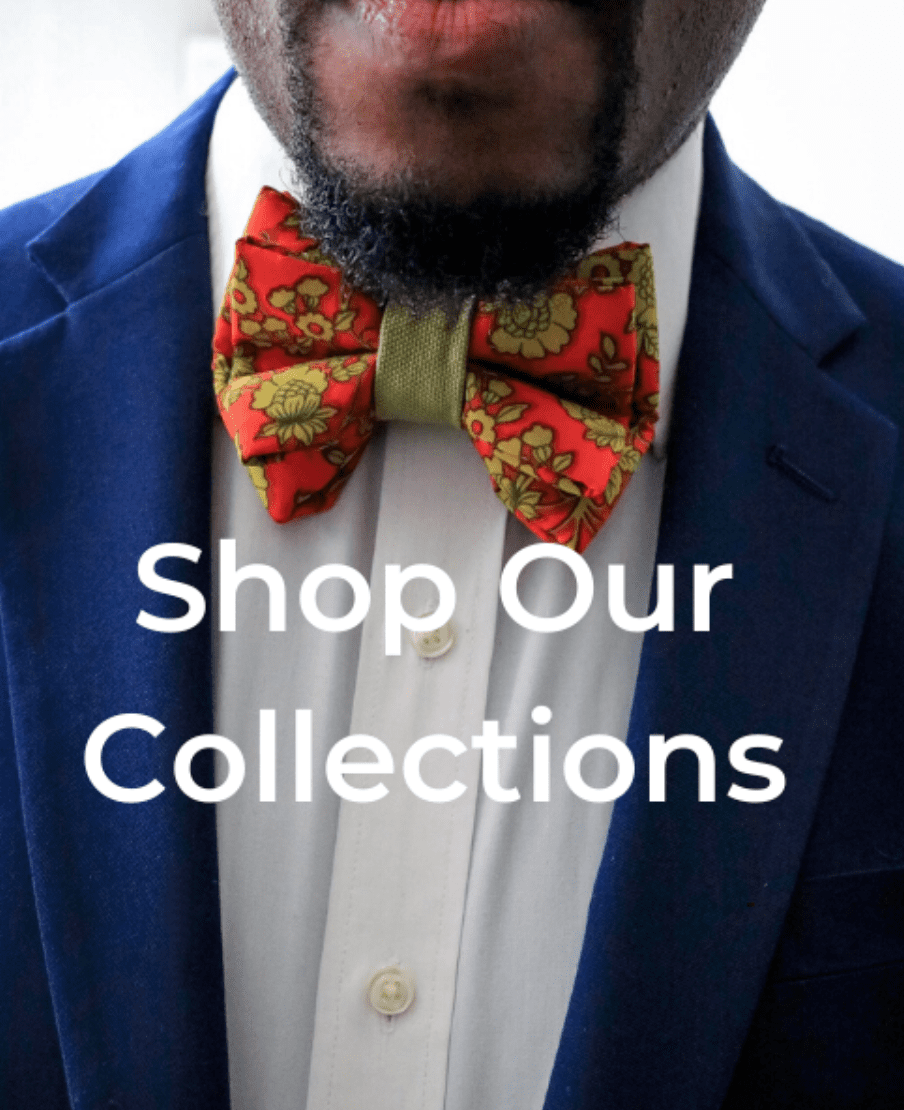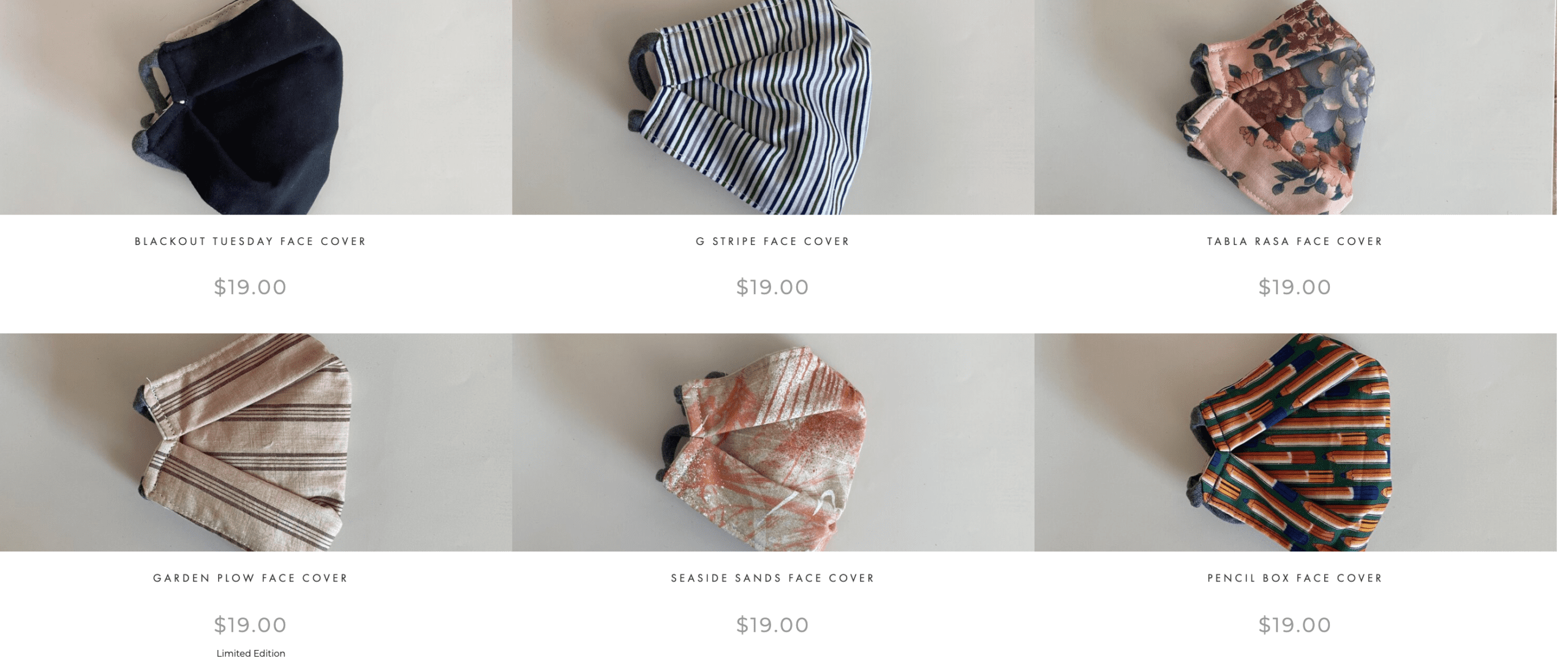
The Little Green Dress - Wrapped in a Bow
by Natalie Bencivenga
August 18, 2020
Nisha Blackwell, founder and CEO of Knotzland, is on a mission to bring sustainable fashion to the people, but she didn’t know that when her story began in 2014. She was making gifts for a children’s birthday party and was looking around the house for what she could repurpose.
“I had a sewing machine and vintage fabric scraps,” she said. “I have always had a knack for patterns, prints, colors and textures, so whenever I saw discarded, beautiful material, I would keep it. Even with all these fabrics sitting around my house, I didn’t know how to sew. That became my motivation. I wanted to learn how,” Blackwell recalled. She started creating hair bows as gifts for her friends’ daughters after watching some sewing tutorials on YouTube.
“Along my journey, I would mend holes in my clothes, buy pieces from department stores that had imperfections and fix them up. It was a win-win. I would get discounted clothing and I knew the garments wouldn’t end up in a landfill by rescuing them,” she said.
The hair bows caught fire as parents gushed over the vintage prints and fabrics, asking for more. “I supported myself all that summer just from those bows,” said Blackwell.
It was at that point that she realized there wasn’t much out there accessories-wise for men and boys. A friend of hers asked if she made bow ties.
“I thought this was an interesting idea,” she said. She began researching and developing prototypes by visiting and purchasing vintage bow ties from places like Eons Fashion Antique in Shadyside, or photographing bow ties in department stores. “I started deconstructing them, understanding how they were made, thinking on how I could improve them,” said Blackwell.
After providing prototypes to her friends with school-aged boys, she learned that not only did they love the bowties, but they actually stayed on throughout the day.
“That's when I knew I was onto something. Reclaimed materials mixed with adorable accessories for kids. This was the start,” she said. Her friend recommended that she take her idea to an incubator now known as Ascender. “We were able to get investment and validation. Five years later, Knotzland Bowtie Co. has arrived and thrived,” she said.
Her client base includes people of all genders who love fashion and want one-of-a-kind looks for events and parties. She creates pieces for weddings, bowties for fashionistas, and those with formal events to attend. She has even begun celebrity commissions for people like musician, Byron Nash.
“This is super niche, we know that. Our clients are loyal and thoughtful about what they wear. Each piece is unique and customizable. They trust our designs and wear them proudly,” she said.

And people can wear them proudly not just for their beautiful, eye-catching designs, but also for the fact that they are not being harmful to the environment during creation. “Recognizing that synthetic materials and plastics in our clothing will not degrade for hundreds of years was a major reason that I wanted to reuse materials, give them new life, as opposed to them sitting in landfills,” she said.
The goal was to be as zero waste as possible. Developing her own standards to make Knotzland’s bow ties sustainable, meant changing the measurements of how much fabric would be used.
“That was a challenge at first,” she said. “We have templates now for our sewers who work from home, but in the beginning they were hesitant at how little fabric they would have to work with,” she recalled. Less fabric meant less waste and she encouraged the sewers to get creative.
But when the pandemic hit in the spring of 2020 and the economic fallout from Covid-19 followed, her business ground to a halt. There were no parties. No weddings. People were pulling back on what they could spend. So like any true entrepreneur, she pivoted.
“Of course Covid-19 has impacted us. In the first few weeks we realized that we had to work together to protect the greater good. That was when we decided to start with the mask-making efforts,” she said. She began prototyping masks for essential workers for free until they perfected the process. “We went from working by ourselves to joining a collective: Mask Makers PGH,” said Blackwell.

Pulling resources, they’ve been able to work to provide masks for grocery store workers, retail workers and immunocompromised friends and neighbors who may not have had access to masks. She was able to re-hire members from her sewing community to take on paid projects for different organizations in the city. “We’ve been able to do more good and provide economic opportunities to people who were out of work,” she said.
As she continues to navigate this world, she aims her focus on what is working and finding stability in order to keep the lights on and pay her sewing community. There hasn’t been any government or grant funding for Knotzland, and it is remarkable to note how her tenacity, passion and commitment to the work has kept her company afloat.
“I want to say that when I started this journey, I didn't think sustainable fashion was accessible. It felt like it was a class issue. It was expensive to wear eco-friendly designs. Knotzland is accessible to the people. It is both vibrant and sustainable fashion. Doing what we do… that excitement, that creativity, knowing that we are helping to support a healthy environment through our work.... That is what keeps me going,” she said.

Leave A Comment